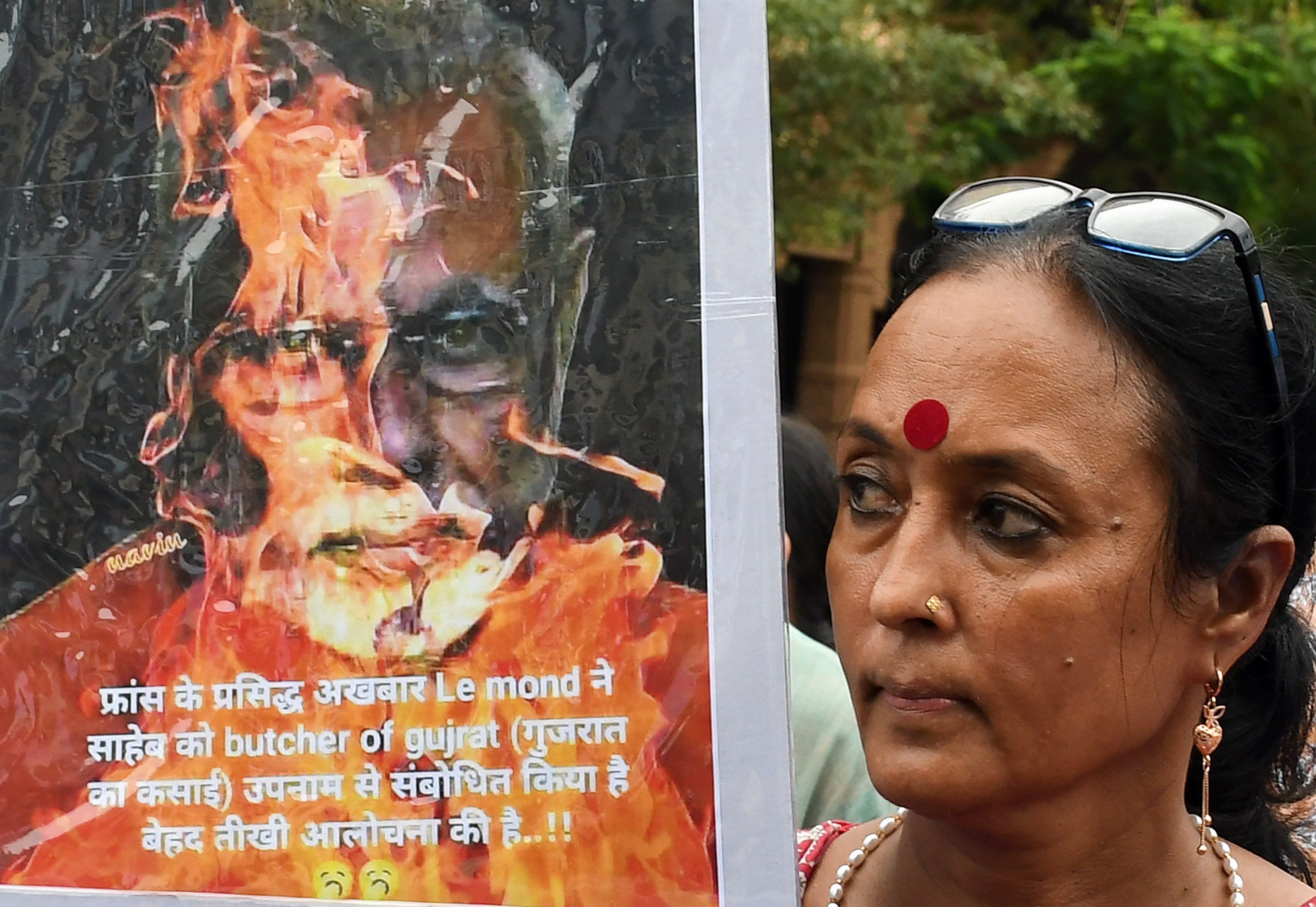A protester holds a placard showing an image of burning PM Narendra Modi during a demonstration against the Manipur violence in Mumbai, India.
Ashish Vaishnav / SOPA Images/Sipa USA via Reuters Connect
India’s Prime Minister Narendra Modi has been reluctant to speak publicly about a surge of ethnic violence in the country’s Manipur province. An explosive viral video of a mob of men stripping and abusing a pair of women forced him to respond last week, but his political rivals say he’s done little to quell the broader conflict, which has killed at least 130 people and driven tens of thousands from their homes.
That’s why the opposition Congress Party called on Wednesday for a vote of non-confidence against his government. Modi remains highly popular across India, and his party and its allies hold a large enough parliamentary majority to easily defeat the motion. But that result will come only after several hours of debate in parliament’s lower house in which Modi’s critics expect he will have to say something substantive about the ethnic clashes.